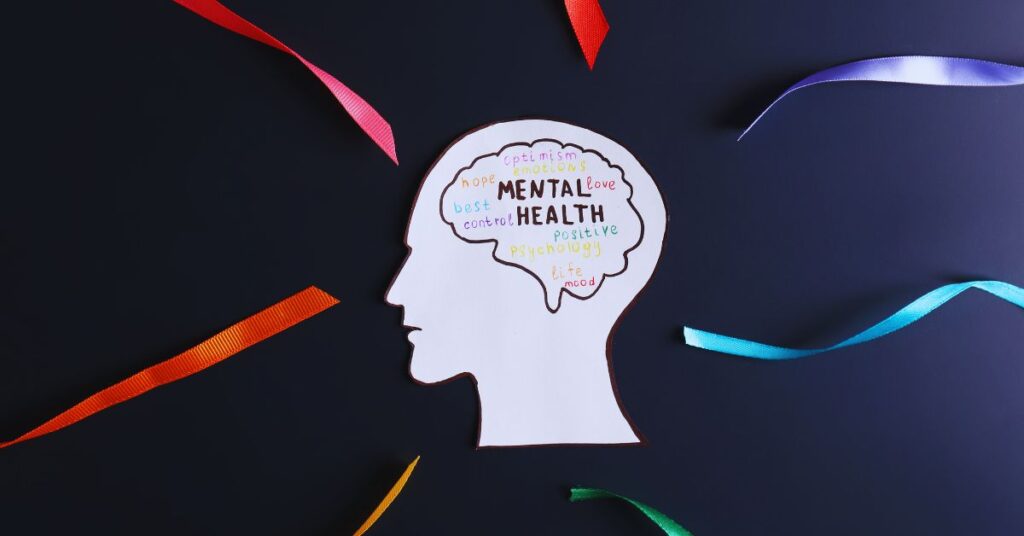Postpartum depression (PPD) is a serious condition that affects many new mothers. It goes beyond the typical “baby blues” and requires attention.
Understanding PPD is crucial for both mothers and those around them. This condition can manifest in various ways, making it hard to spot. Many myths and misconceptions surround postpartum depression, leading to confusion and stigma. In this blog post, we will clarify some common beliefs and uncover the truth about PPD.
Knowing the facts can help in identifying and supporting those in need. Let’s dive into the true statements about postpartum depression and shed light on this important topic.
Topic of Contents
ToggleCauses Of Postpartum Depression
Postpartum depression is a complex condition that affects many new mothers. Understanding its causes can help in identifying and managing this condition. The causes of postpartum depression can be grouped into several factors, including hormonal changes and emotional factors.
Hormonal Changes
After childbirth, a woman’s hormone levels change rapidly. Estrogen and progesterone levels drop significantly. This sudden change can contribute to mood swings and depression. Hormonal changes can affect a woman’s brain chemistry. This makes it harder for her to control her mood.
Emotional Factors
Becoming a new mother can be overwhelming. There are many new responsibilities and challenges. Lack of sleep and physical exhaustion can also add to emotional stress. Many women feel pressure to be perfect mothers. This can lead to feelings of inadequacy and depression. Support from family and friends is crucial during this time.
Symptoms To Watch For
Postpartum depression is a serious condition affecting many new mothers. Recognizing the symptoms early can help in seeking timely treatment. Below are some symptoms to watch for, categorized into emotional and physical symptoms.
Emotional Symptoms
Mothers may experience feelings of sadness and hopelessness. Anxiety and excessive worry are common. There might be a loss of interest in activities once enjoyed. Mood swings and irritability can also occur. Some mothers feel disconnected from their baby.
Physical Symptoms
Fatigue and lack of energy are common physical symptoms. Some may have trouble sleeping, even when the baby sleeps. Changes in appetite can occur, leading to weight loss or gain. Physical aches and pains without clear causes might be present. Difficulty concentrating or making decisions is also a sign.
Risk Factors
Understanding the risk factors of postpartum depression can help in its early detection and prevention. Below are some key elements that could increase the likelihood of experiencing this condition.
Personal History
A personal history of mental health issues is a significant risk factor. If a woman has dealt with depression or anxiety before, she is more susceptible to postpartum depression. A history of substance abuse or eating disorders can also elevate the risk. Additionally, a family history of mental health problems can contribute. Genetic factors play a role and if a close family member has suffered from depression, the chances increase.
Social And Environmental Factors
Social and environmental factors also play a crucial role. Lack of support from family and friends is a major risk factor. Women who feel isolated or lonely are more vulnerable to postpartum depression. Stressful life events such as financial problems, relationship issues, or the death of a loved one can exacerbate the condition. Unstable living conditions or a poor relationship with the baby’s father also add to the risk. Below is a table summarizing these risk factors:
| Risk Factor | Description |
|---|---|
| Personal History | Previous mental health issues, family history of depression |
| Social Support | Lack of emotional and practical support |
| Stressful Events | Financial problems, relationship issues, loss of loved ones |
Understanding these risk factors can help in identifying and treating postpartum depression early. Awareness and support are key in managing this condition.
Impact On Mothers
Postpartum depression (PPD) is a serious condition that affects many new mothers. It impacts both their mental health and physical well-being. Understanding these impacts can help mothers seek the support they need.
Mental Health
Postpartum depression can severely affect a mother’s mental health. Feelings of intense sadness, anxiety, and exhaustion are common. These feelings can make it difficult for mothers to care for their babies and themselves. Mothers may also experience:
- Low self-esteem
- Difficulty bonding with their baby
- Persistent doubts about their parenting abilities
These mental health challenges can make everyday tasks overwhelming. Seeking help from a healthcare provider is crucial for managing these symptoms.
Physical Well-being
Postpartum depression also affects a mother’s physical well-being. Fatigue is a common symptom, often feeling more intense than typical new-parent exhaustion. Other physical symptoms include:
- Changes in appetite
- Sleep disturbances
- Headaches or other aches and pains
These physical symptoms can further impact a mother’s ability to care for herself and her baby. Addressing both mental and physical health is essential for recovery. In conclusion, postpartum depression has significant effects on mothers. Understanding and addressing these impacts can help mothers on their journey to recovery.
Effect On Infants
Postpartum depression (PPD) can significantly affect infants. The early months are crucial for a baby’s growth. PPD can interfere with this critical period. It affects the emotional and physical development of the infant. Let’s dive into some specific areas impacted by PPD.
Bonding Issues
Mothers with PPD may struggle to bond with their infants. This lack of bonding can impact the child’s sense of security. Babies need to feel safe and loved. Bonding helps build trust between mother and child. PPD can make mothers feel detached, leading to less interaction. Infants might become more irritable or develop attachment issues.
Developmental Delays
PPD can also lead to developmental delays in infants. Mothers may struggle with daily caregiving tasks. This can result in missed opportunities for stimulation and learning. Infants need consistent care and engagement to thrive. Without it, they may fall behind in reaching milestones. Delays in motor skills, language, and social skills can occur. Early intervention can help. Recognizing PPD and seeking help is vital. Support for the mother often translates to better outcomes for the child.
Treatment Options
Postpartum depression is a serious mental health condition affecting new mothers. Fortunately, there are effective treatment options available. Understanding and addressing these options can help mothers recover and enjoy their new role.
Therapy
Therapy is one of the most effective treatments for postpartum depression. It involves talking to a mental health professional. Therapists help new mothers understand their feelings. They provide strategies to manage stress and depression. There are different types of therapy. Cognitive Behavioral Therapy (CBT) is very popular. It helps mothers change negative thought patterns. Interpersonal Therapy (IPT) focuses on improving relationships and communication skills. Both can be very beneficial. Group therapy is another option. It allows mothers to share experiences. They can support each other and feel less alone. This sense of community can be very healing.
Medications
Sometimes, therapy alone is not enough. In such cases, medications can help. Antidepressants are commonly prescribed. They help to balance brain chemicals that affect mood. There are different types of antidepressants. Selective Serotonin Reuptake Inhibitors (SSRIs) are often the first choice. They are effective and have fewer side effects. Serotonin and Norepinephrine Reuptake Inhibitors (SNRIs) are another option. They work on more than one brain chemical. It’s important to consult a doctor before starting any medication. They can recommend the best option. They will also monitor for any side effects. In some cases, a combination of therapy and medication is the best approach. This holistic treatment plan can provide comprehensive support.
Role Of Family Support
Postpartum depression is a serious condition affecting many new mothers. One of the key factors in overcoming this is family support. This support can come in many forms, from emotional encouragement to practical assistance. Understanding the role of family support is crucial in helping new mothers navigate this challenging period.
Emotional Support
Emotional support from family can make a significant difference. Families can provide a listening ear and validate the mother’s feelings. This can help her feel understood and less alone.
- Listening without judgment
- Encouraging open communication
- Offering positive reinforcement
Emotional support also includes being patient and understanding. Acknowledge the mother’s struggles and reassure her that she is not alone. This kind of support can help improve her mental well-being.
Practical Assistance
Practical assistance is another crucial aspect of family support. This includes helping with daily tasks and responsibilities.
| Task | Example |
|---|---|
| Household chores | Cleaning, laundry, and cooking |
| Childcare | Babysitting, changing diapers, feeding |
| Errands | Grocery shopping, picking up medications |
By sharing the workload, family members can help reduce the mother’s stress. This allows her to focus more on recovery and bonding with her baby.
Preventive Measures
Postpartum depression is a serious condition that affects many new mothers. Taking preventive measures can significantly reduce the risk. These measures focus on early detection and maintaining a healthy lifestyle.
Early Detection
Recognizing the signs of postpartum depression early is crucial. Early detection allows for timely intervention and support. New mothers should be aware of symptoms like:
- Constant sadness or hopelessness
- Loss of interest in activities
- Changes in sleep or appetite
Healthcare providers play a key role in early detection. Regular check-ups and open communication with doctors can help identify early signs. Encouraging partners and family members to watch for symptoms is also important.
Healthy Lifestyle
Maintaining a healthy lifestyle can prevent postpartum depression. A balanced diet, regular exercise, and adequate sleep are essential. Here are some tips for a healthy lifestyle:
- Eat a variety of nutrient-rich foods. Focus on fruits, vegetables, and whole grains.
- Exercise regularly. Even a short walk each day can make a difference.
- Get enough sleep. Aim for at least 7-8 hours each night.
Support from loved ones can enhance a healthy lifestyle. Encourage new mothers to ask for help with daily tasks. Social support networks also provide emotional and practical assistance.
| Aspect | Tips |
|---|---|
| Diet | Include fruits, vegetables, and whole grains. |
| Exercise | Take short daily walks. |
| Sleep | Ensure 7-8 hours of sleep each night. |
| Support | Seek help from loved ones for daily tasks. |
Adopting these preventive measures can make a significant difference. Early detection and a healthy lifestyle are key to reducing the risk of postpartum depression.
Frequently Asked Questions
What Are The Symptoms Of Postpartum Depression?
Postpartum depression symptoms can include sadness, anxiety, fatigue, and changes in sleep or eating patterns. It’s important to recognize these signs early.
How Long Does Postpartum Depression Last?
The duration of postpartum depression varies. It can last a few weeks to several months. Seeking treatment can help manage symptoms.
Can Men Experience Postpartum Depression?
Yes, men can experience postpartum depression. Fathers may feel overwhelmed, anxious, or depressed after the birth of a child.
What Causes Postpartum Depression?
Postpartum depression can be caused by hormonal changes, lack of sleep, and the stress of new responsibilities. It’s a complex condition.
Conclusion
Postpartum depression is real and affects many new mothers. It’s important to recognize the symptoms early. Seeking help can make a big difference. Support from family and friends is crucial. Always consult a healthcare provider if you notice signs. Remember, you are not alone.
Many women go through this and come out stronger. Take care of your mental health. Your well-being matters.







